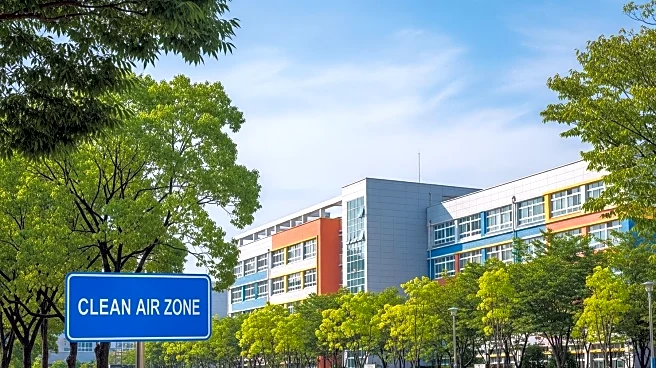What's Happening?
Sheffield City Council has decided to use over £200,000 raised from its Clean Air Zone (CAZ) fees to enhance road safety around five local schools. The CAZ, introduced in February 2023, requires commercial vehicles and taxis that do not meet emission standards to pay a fee to enter the city center. The funds will be directed towards temporarily closing roads outside Broomhill Infants, Meynell, Fox Hill, Rivelin primary schools, and Hinde House Secondary during pick-up and drop-off times. This initiative is part of the School Streets program, which aims to improve air quality and safety around schools by reducing traffic congestion during peak hours.
Why It's Important?
The allocation of CAZ fees to school safety schemes underscores the importance of integrating environmental and public health policies. By reducing traffic congestion and improving air quality around schools, the initiative not only enhances student safety but also contributes to broader environmental goals. This approach reflects a growing trend in urban planning where cities are leveraging environmental fees to fund community-focused projects. The decision could serve as a model for other cities facing similar pollution challenges, demonstrating how environmental policies can be aligned with public health and safety objectives.
What's Next?
As the School Streets program gains popularity, more schools in Sheffield, such as Mundella Primary and Hunter's Bar Infants, are expected to join the initiative. The success of these schemes may prompt further expansion and potentially influence other cities to adopt similar measures. Continuous monitoring and evaluation will be crucial to assess the impact on air quality and road safety, potentially leading to permanent changes in traffic management around schools.
Beyond the Headlines
The use of CAZ fees for school safety initiatives highlights the ethical dimension of environmental policy, emphasizing the responsibility of local governments to protect vulnerable populations, such as children, from pollution. It also raises questions about the long-term sustainability of such funding models and the need for comprehensive strategies that address both environmental and social issues.









